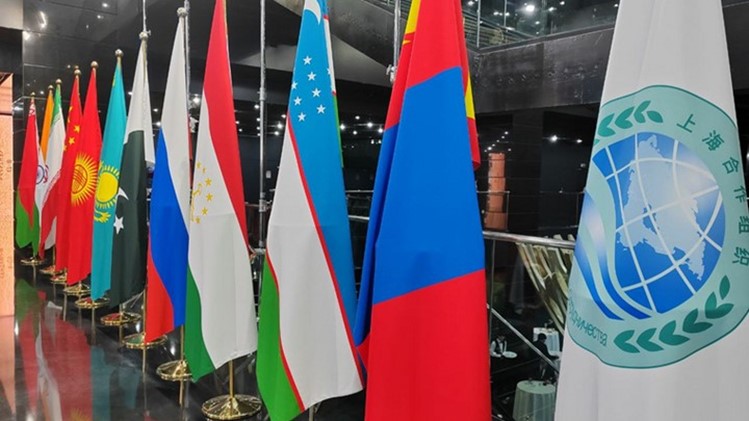The ongoing Shanghai Cooperation Organization (SCO) summit in Pakistan is a pivotal diplomatic event amidst regional tensions and security challenges.

Diplomatic Significance of the SCO Summit
The SCO Summit, currently being held in Pakistan, holds great diplomatic significance for South Asia and beyond. Leaders from all the SCO member states will gather on 15th-16th October in this major summit to discuss regional issues, from economic cooperation to security challenges. Amidst rising security challenges, political tensions, and economic uncertainty, this meeting is seen as a significant opportunity for regional countries to collaborate. This intergovernmental organization was established in 2001. The SCO has gained immense importance over the years by bringing countries closer with shared interests in maintaining stability, cooperation, and peace in an intricate and dynamic global environment.
A Platform for Regional Dialogue
The SCO was created to fulfill the needs of the Central Asian states and provide a novel platform for security cooperation and regional dialogue. The forum was initially established by Russia, China, Kyrgyzstan, Uzbekistan, Kazakhstan, and Tajikistan to foster mutual trust and address regional security challenges collectively. However, the organization’s agenda expanded over the years to include wider concerns such as countering extremist ideologies, separatism, terrorism, and fostering economic cooperation. The two key players of South Asia, Pakistan and India, were admitted to the SCO as full members in 2017, enhancing the geopolitical significance of the organization.
Currently, the SCO comprises 8 full members: Russia, China, Pakistan, Kazakhstan, Tajikistan, India, Uzbekistan, and Kyrgyzstan. In addition, numerous observer states are also part of the SCO, including Belarus, Mongolia, Belarus, and Afghanistan. Armenia, Azerbaijan, and Turkey serve as the dialogue partners of the SCO. The member states of the organization for almost half of the world’s population and are amongst the fastest-growing economies of the world, adding to the significance of the forum on the global stage.
The diversity of the member states of the SCO is what further enhances its importance. Countries with diverse historical backgrounds, cultures, political systems, and economic ambitions engage in dialogue through this platform. For Pakistan, being the host of the ongoing SCO conference, SCO membership has been of paramount significance. The SCO’s emphasis on counterterrorism aligns with Pakistan’s security-related issues. Multiple terrorist attacks on the Chinese engineers in Pakistan demonstrate the security plight of the country. For years, Pakistan’s military has been fighting against militancy and extremism in its tribal areas and Balochistan province. The forum, especially the current summit in Islamabad, provides the country with an opportunity to strengthen its diplomatic ties with the two superpowers of the world, Russia and China, along with diplomatic engagement with other significant regional players, including India, on the issues of mutual interests.
Addressing Regional Instability and Economic Cooperation
The ongoing SCO summit in Pakistan has brought the country into the global spotlight as representatives from all the member countries and observer states are currently in Islamabad, discussing the issues of mutual concern. The current instability in the region has increased the cruciality of this conference. The premature withdrawal of the NATO forces from Afghanistan, observing members in the SCO, has created a security and power vacuum in the country. The SCO members, especially Russia and China, are keen to address the instability in Afghanistan to ensure peace in the region. The Central Asian states and Pakistan are also highly concerned about Afghanistan’s ongoing crisis, as they share a border with it. The SCO provides all the member states with a significant and effective platform for discussing and addressing the Afghanistan conundrum collectively.
The forum also presents opportunities for the member nations to cement their economic ties through cooperation in energy, trade, and infrastructure development. Pakistan is already hosting the Belt and Road Initiative (BRI)’s flagship project – the China-Pakistan Economic Corridor (CPEC) – the ongoing summit could lead to discussions to further integrate the country into regional and global trade alliances. China being a leading member of the SCO and a key investor in the country’s energy and infrastructural projects further accentuates the economic leverage of the forum’s engagement in the South Asian region.
Russia being a key regional and global player also holds significant interest in the region. Therefore, this summit offers new avenues for multilateral cooperation in defense, technology, and energy. This forum would further strengthen Russia’s influence in the Central Asian and South Asian regions. Overall, in the contemporary altering and uncertain globe, the SCO platform offers an opportunity for all the member states to engage with neighboring and regional countries. This summit would address regional security concerns and strengthen economic relations between the member states. The presence of regional and global players in the event increases the importance of the summit for Pakistan and other member states. This conference has the potential to promote stability and peace in the region, presenting both opportunities and challenges. This conference also holds the potential for fostering cooperation between Central Asia, South Asia, and beyond.
Abbas Hashemite – is a political observer and research analyst for regional and global geopolitical issues. He is currently working as an independent researcher and journalist, exclusively for “New Eastern Outlook”
